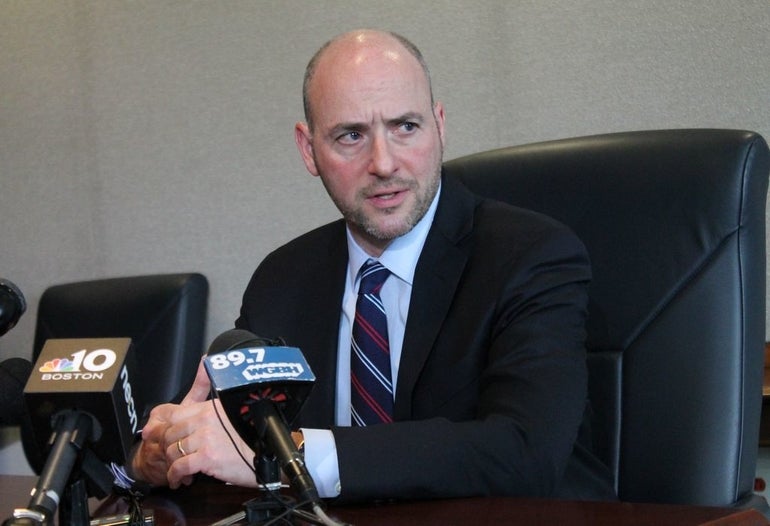The U.S. Attorney for Massachusetts warned opioid prescribers this week their practices in authorizing the drugs are a source of concern in the ongoing health crisis.
Opioids, which include prescription painkillers oxycodone, hydrocodone, codeine and morphine, killed an estimated 1,500 Massachusetts residents this year through the end of September, according to the state Department of Public Health. More than 2,000 state residents died of opioids in 2016 and nearly as many last year.
Federal data show prescribers are far more likely to turn to opioids than in the past.
In 2017, doctors prescribed 59 opioids per 100 patients, according to the Centers for Disease Control and Prevention. That rate, though lower than in 2012, is three times higher than it was in 1999.
The opioid epidemic, the U.S. Attorney’s Office said, was caused in part by what it called widespread over-prescription of opioids.
U.S. Attorney Andrew Lelling warned an unspecified number of prescribers who his office found had prescribed opioids to a patient within 60 days of that patient’s death or who subsequently died from an opioid overdose.
“One source of opioids – used for both legitimate and illegitimate purposes – is medical professionals, who have an obligation always to act in patients’ best interests,” Lelling said in a statement Thursday. “In the midst of an opioid epidemic, that obligation is more important than ever before. Through this effort, we’re trying to educate prescribers who may be improperly dispensing these drugs, stem the flow of opioids to the public and, ultimately, save lives and reduce opioid addiction rates.”
Lelling’s letters to prescribers reminded them although opioid prescriptions may be medically appropriate, law prohibits doctors from prescribing the drugs without a legitimate medical purpose or giving substantially more than the patient needs.
Lelling’s office said prescribers receiving the letters had not been determined to violate the law, but that the effort was being made to spur the prescribers to look carefully at their prescribing practices and make any necessary adjustments.

